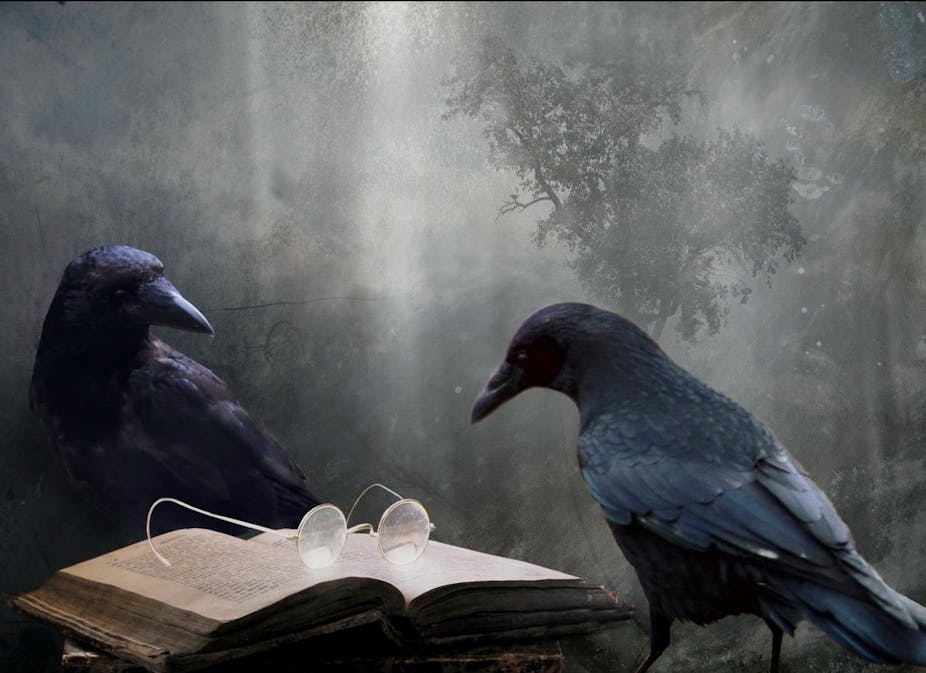Good book reviews are all alike while every bad review is bad in its own way.
In Australia reviews are often bad in many different ways. Historically the trade has consisted of retired English academics, tyro writers wishing to carve out a reputation, and old journalists.
There are exceptions of course, reviewers who understand the complexities of constructing and analysing fiction and non-fiction. It is generally acknowledged, however, that the standard of book reviewing in Australia is poor. Certainly there is no antipodean James Wood.
Complaints about reviews
A common complaint is that the reviewer hasn’t engaged with the writer’s work with sufficient depth and inquiry.
Sometimes there are hidden agendas at play.
Book reviewing is not a financially rewarding occupation. Many scholars don’t have the time to spend a day reading a book and then writing an insightful review for A$120. So it invariably falls to the second-rate, the hack who skims the text and summarises the blurb and whose real motive for reviewing the novel in the first place is to see their name in the book pages.
Every writer at some point experiences a sloppy or inaccurate review.
The pleasure of a good review
We all know what a good review is.
It is engaging, lively, a pleasure to read and gives readers a taste of the prose and the narrative so that they can decide whether to buy the book. For the writer a good review is anything positive written by someone who understands the intentions of your work.
A good review may be critical of aspects or even the execution of the writing, but the only way a good review can be bad if it is exaggerated in its praise. Excessive admiration provides a disservice to author and reader.
Most writers, however, don’t just receive good reviews.
They receive contradictory reviews. Is it any wonder so many writers are manic depressives? But what does such wide divergence of opinion tell us about the motives for reviewing?
In cases of outright hostility the reader suspects that it is not the work being attacked, but the writer.
The local problem
The problem of reviewing in Australia lies not so much with our literary editors but with a limited pool of reviewers. A large part of an editor’s job is to find a suitable reviewer for a book – and that is no easy task given the size of Australia’s literary scene.
Invariably editors return to the same old names and although most of them try to follow the unwritten code that you don’t review a book of an author you know intimately, or one you dislike intensely, the root of the problem stems from the fact that aside from the word limit there are no guidelines.
Teaching writing in a university and reviewing fiction are not dissimilar.
In a writing workshop there are rules that assist constructive criticism and allow the students to come away with insights into the strengths and weaknesses of their own work, and also the process of writing.
The rules
These rules are distributed by an experienced teacher who guides the discussion and ensures that the text is the only focus of review. Flattery as a critical response is discouraged, and political ideologies are not permitted to influence the criticism.
Without these basic rules the workshop falls apart and participants are reduced to responding at the lowest critical level. Just as there are rules for teaching writing there are also rules for reviewing fiction.
Novelist and reviewer John Updike established five useful rules which are valid today:
- Try to understand what the author wished to do, and do not blame them for not achieving what they did not attempt.
- Give them enough direct quotation – at least one extended passage – of the book’s prose so the reader can form their own impression, can get their own taste.
- Confirm your description of the book with quotation from the book, if only phrase-long, rather than proceeding by fuzzy precis.
- Go easy on plot summary, and do not give away the ending.
- If the book is judged deficient, cite a successful example along the same lines, from the author’s ouevre or elsewhere. Try to understand the failure. Sure it’s theirs and not yours?
The majority of bad reviews in Australia violate at least one of Updike’s precepts.
There is the kind of bad review which is ostensibly about “the book” but is really about “the reviewer”. But the worst review is where the reviewer (Updike’s Rule 4) relates the plot in mind-numbing detail. No reader wants to know the plot of a book. So why should a lazy reviewer give it away?
Instead, give readers a sample of the prose. Show them something of the texture, of the book’s narrative arc, of historical precedents in the genre. It is better to praise and share, as Updike wrote, than to blame and ban.
But book reviewing is not about the writer, just as it should never be about the reviewer. Book reviewing is about the reader. It is about bringing ideas and information and entertainment and education to a wider public. The review pages of a newspaper should serve as a barometer of a city’s intellectual life and for all the wonder and joy of the internet, the quality of critical response out there on the world wide web is far exceeded by the quantity of uninformed opinion.
Reading is one of life’s great pleasures so anything that lifts the standard of book reviewing in this country is doing us all a service. Reviewers need to be as knowledgeable, as committed and as scrupulous as their readers.
“The communion between reviewer and reader is based upon the presumption of the possible joys in reading,” Updike wrote, “and all our discriminations should curve towards that end”.
See also:
Anonymous book reviews don’t foster our literary culture.

